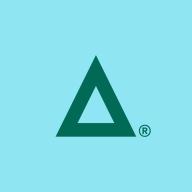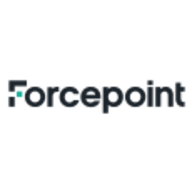


Forcepoint Data Loss Prevention and Digital Guardian are major players in the data security field. Users tend to prefer Forcepoint for its endpoint and network-level security capabilities, while Digital Guardian is favored for its detailed forensic analysis and precise data classification.
Features: Forcepoint features integration with cloud protection, customizable templates, and unique fingerprinting technology. Digital Guardian excels with adaptive inspection, comprehensive data classification, and robust forensic analysis capabilities.
Room for Improvement: Forcepoint needs enhanced language support in non-English speaking regions and faster support response. Digital Guardian should improve its endpoint agent stability and broaden support across Mac and Linux platforms.
Ease of Deployment and Customer Service: Forcepoint supports diverse deployment scenarios but faces challenges in setup complexity. Digital Guardian offers consistent customer service and flexible deployment, effectively supporting various environments.
Pricing and ROI: Forcepoint provides competitive pricing and flexible licensing, with excellent ROI due to its comprehensive security suite. Digital Guardian, although slightly pricier, offers great value through its robust protection features and effective data security return on investment.
| Product | Market Share (%) |
|---|---|
| Forcepoint Data Loss Prevention | 5.7% |
| Digital Guardian | 2.5% |
| Cloudflare One | 1.7% |
| Other | 90.1% |


| Company Size | Count |
|---|---|
| Small Business | 10 |
| Midsize Enterprise | 2 |
| Large Enterprise | 10 |
| Company Size | Count |
|---|---|
| Small Business | 10 |
| Large Enterprise | 3 |
| Company Size | Count |
|---|---|
| Small Business | 33 |
| Midsize Enterprise | 6 |
| Large Enterprise | 28 |
Cloudflare One is a comprehensive platform for security, performance, and connectivity. It provides features like rate limiting, DDoS protection, and application access, tailored to enhance user experience while securing internet access and accelerating communications.
Designed to integrate security measures with ease of use and scalability, Cloudflare One offers a secure web gateway and zero trust network access. These features ensure seamless setup and operation, making connectivity reliable and protected. Users appreciate its integrated console, intuitive interface, and the ability to manage risk effectively. It offers straightforward deployment, improves latency, and boasts cost-effectiveness. While its onboarding process and documentation need enhancement, its value in content delivery and application shielding is notable. Despite challenges in integrating Cloudflare Access with existing VPNs and the need for better automation and support, it remains vital for DNS and infrastructure protection.
What features make Cloudflare One stand out?In industries like finance, retail, and technology, Cloudflare One is crucial for enabling secure remote access and protecting web applications against dynamic threats. It supports compliance access policies and enhances content delivery, playing a key role in safeguarding digital infrastructure.
Digital Guardian is proud to be part of Fortra’s comprehensive cybersecurity portfolio, and one of the Data Protection family of products. Fortra simplifies today’s complex cybersecurity landscape by bringing complementary products together to solve problems in innovative ways. These integrated, scalable solutions address the fast-changing challenges you face in safeguarding your organization. With the help of the powerful protection from Digital Guardian and others, Fortra is your relentless ally, here for you every step of the way throughout your cybersecurity journey.
Forcepoint Data Loss Prevention (DLP) protects sensitive data everywhere it resides and moves, across endpoints, cloud apps, web, email, and on-premises environments. It delivers unified policies and centralized visibility to simplify compliance and prevent data breaches in real time.
With over 1,800 pre-defined templates, policies, and classifiers covering the regulatory requirements of 90+ countries and 160+ regions, Forcepoint DLP accelerates deployment and ensures precise protection of regulated and sensitive data.
Flexible deployment options let organizations protect data on-premises, in the cloud, or through a hybrid approach using the same unified console. Powered by AI-driven classification and Risk-Adaptive Protection (RAP), Forcepoint DLP reduces complexity, automates compliance, and safeguards data wherever work happens.
Forcepoint Data Loss Prevention is equipped with advanced fingerprinting technology, optical character recognition, and a large library of predefined rules. Organizations gain comprehensive data visibility and effective policy enforcement, supported by dynamic user behavior analysis and compliance capabilities. Its intuitive interface and flexible deployment options position it as a top choice for data security, although it could improve in communication reliability and language support. Complex reporting, machine learning integration, and cross-platform compatibility require enhancements.
What are the key features of Forcepoint Data Loss Prevention?
What benefits and ROI can users expect from reviews?
In industries like finance, legal, and healthcare, Forcepoint Data Loss Prevention is implemented to protect sensitive data such as credit card information and personal identification. It monitors and controls data on networks, endpoints, and cloud services, detecting unauthorized transfers through features like OCR and fingerprinting.
We monitor all Data Loss Prevention (DLP) reviews to prevent fraudulent reviews and keep review quality high. We do not post reviews by company employees or direct competitors. We validate each review for authenticity via cross-reference with LinkedIn, and personal follow-up with the reviewer when necessary.